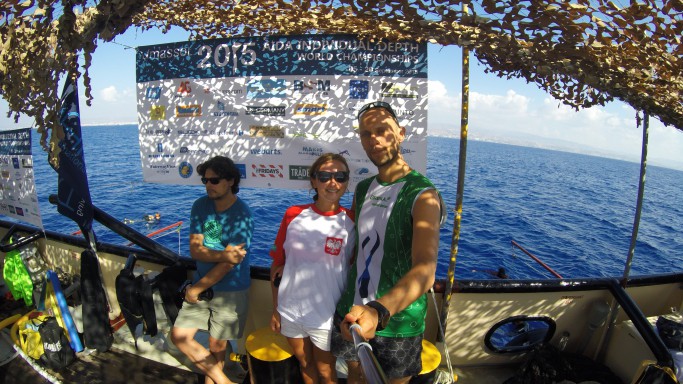AIDA Depth World Championships 2015, Limmasol, Cyprus
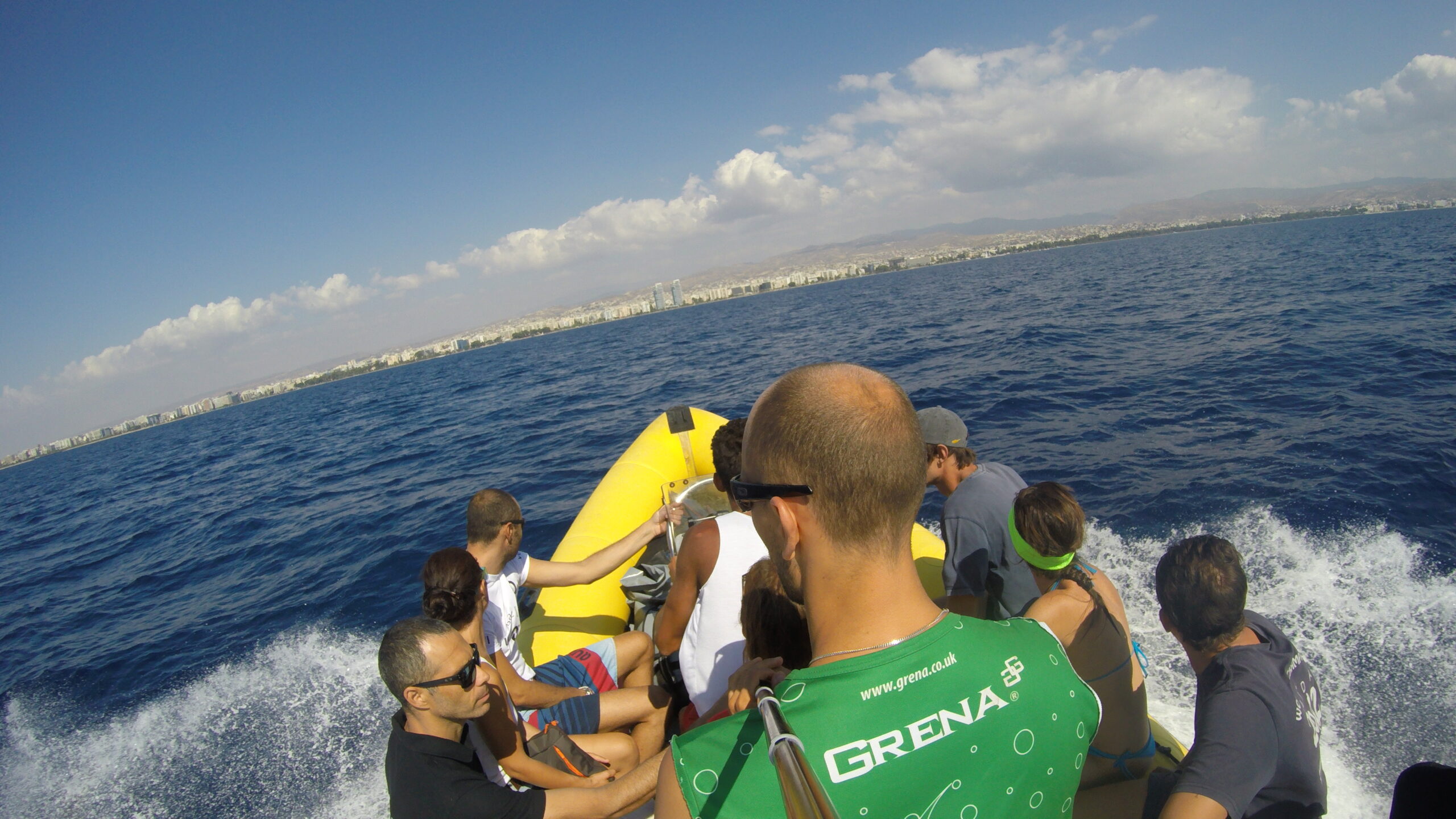
The AIDA Individual Depth World Championships have just finished on Sunday. Since September 5th, 2015 until September 20th, 2015, the best freedivers in the world trained and competed in the Mediterranean Sea in three depth disciplines: CNF (Constant weight apnea without fins), CWF (Constant weight apnea), FIM (Free immersion) in Limassol, Cyprus.
The weather and water conditions during this championships were a bit tricky and have definitely had an impact on the performances of most of the athletes.
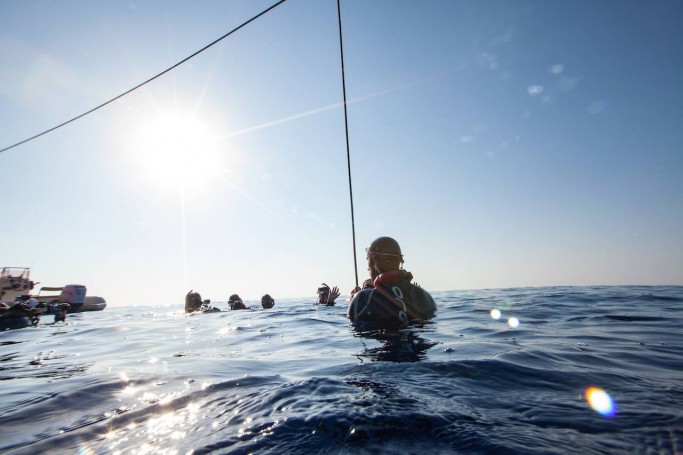
The first days until September 11th was the time when we could get used to the conditions in this location and train. An September 11th was the official opening of the World Championships.
The competition days were as followed:
September 14th – CNF competition
September 16th – CWT competition
September 19th – FIM competition and award ceremony.
Two medals
I have brought home two medals: Silver and Bronze.
The silver one in the CNF discipline with a dive of -76m (Constant weight apnea without fins) and the second one, Bronze in FIM with a dive of – 103m (Free Immersion). Both of these results were actually far away from my National Records and capabilities.
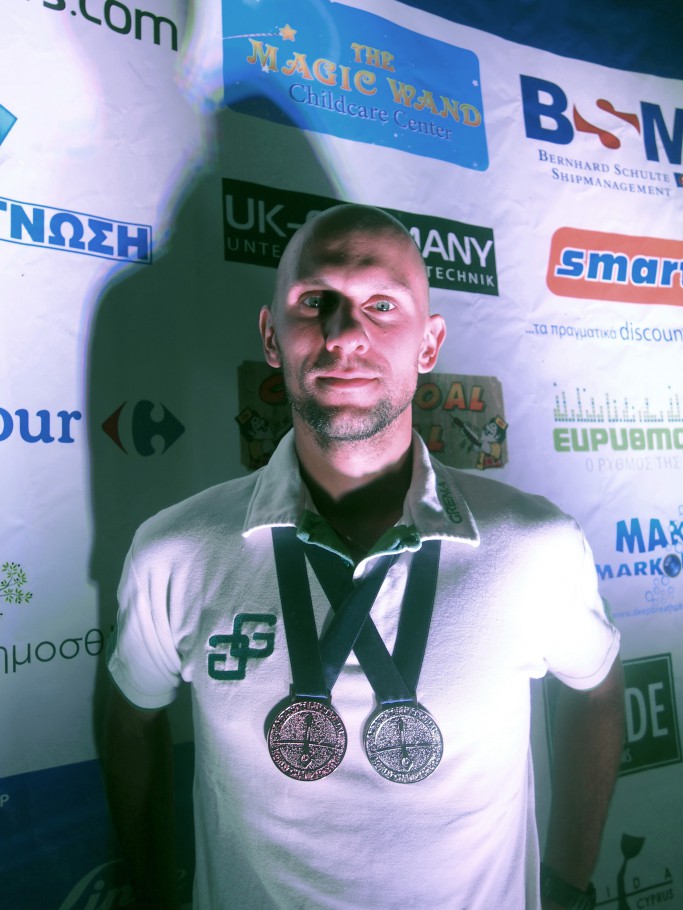
The preparations
Before going to Cyprus I was telling myself that one medal, doesn’t matter which color will make me happy.
I was preparing for two months for this competition, mainly developing chest flexibility and equalization technique in my local quarry. In the last two years I prepared in the same way and everything went just as planned then. However, the Mediterranean Sea turns out to be completely different than the locations I have previously competed: the Red Sea or the best place in the World, Dean’s Blue Hole.
Comparison of my dive profiles from Cyprus and Dean’s Blue Hole
A look at the dive profiles comparison shows that my opinion is not unfounded. The shallower dive you see on the profile is the one from Cyprus this year and the deeper one is from Dean’s Blue hole in November 2014.
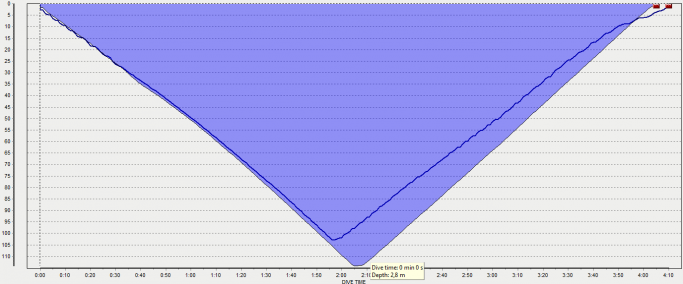
I used the following setup for both dives:
Same number of packs in both scenarios, in Cyprus I wear 0,75kg (total of 2,15kg) of lead more and a suit that’s only ~200g more buoyant.
Simply said, I had to wear more weights to have the same freefall speed and use a thicker suit to not freeze completely due to thermoclines. (A thermocline is a thin but layer in the water in which temperature changes more rapidly with depth than it does in the layers above or below.) On top of that because of thermoclines my body was tensing up and I was losing my mouthfill bit by bit while descending. (Mouthfill is a technique of deep equalization. Air is taken from lungs to mouth before they are compressed. That air is used all the way down to equalize ears and sinuses. If air is lost once lungs are collapsed it can’t be recovered and I have to start ascent, otherwise if I would keep descending, increasing pressure would create pain in my ears and eventually it would rupture my ear drum.) The way up was significantly slower because of all that extra weight. Additionaly, an extra slow down on last ~25m is due to my new safety precaution regarding DCS (decompression sickness).
Diving in the Red Sea would be better only in term of equalization, because there is no big thermoclines there, however, the buoyancy problem would be the same.
Training in the Mediterranean Sea before the competition
When I arrived at Cyprus in the beginning of September, I was stuck at 70 – 90m for almost 2 weeks and I felt just like 6 years ago when conquering those depths was a challenge in term of equalization. Luckily because of all my experience and knowledge now I managed to reteach myself how to do it and I didn’t need another 6 years 🙂 I simply got used to the conditions while trying out all sorts of weird techniques.
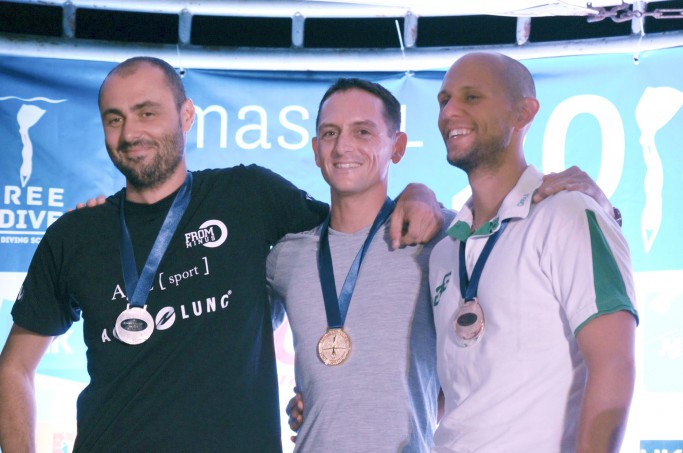
I’m extremely happy with my last 103m dive that brought me a bronze medal. I have equalized right before target depth which would result in at least 110 – 112m. I never thought that I will leave Cyprus reaching that point again.
A big part of my success is the fact that during summer I was anticipating early morning starts and I trained my maximum dives in similar conditions time-wise. Some of the divers were not prepared for it and their capabilities were reduced.
I’m extremely thankful to my life partner Ola, for being the best coach ever and Grena LTD for their support!
Right now it’s time to rest.
In the remaining part of the year I will focus on pool competitions.
